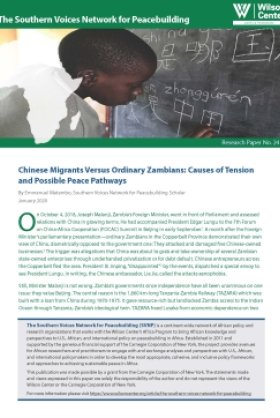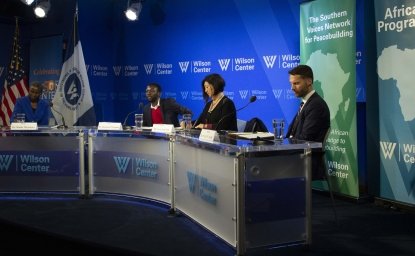Chinese Migrants Versus Ordinary Zambians: Causes of Tension and Possible Peace Pathways


Zambia and China have a longstanding relationship dating back to Zambia’s independence in 1964. While much has been written and discussed about China-Africa relations at the state level, attention is only now turning to China-Africa relations at the sub-national level. In recent years, Zambia and China’s relationship has come under scrutiny with Zambia’s increasing dependence on Chinese debt, increased Chinese migration to Zambia, and lackluster Zambian economic performance. Tensions continue to rise between Zambian citizens and Chinese migrants, and a growing popular image of China and Chinese citizens as exploitative employers and economic usurpers has led to increasing resentment.
In this paired paper and policy brief, Southern Voices Network for Peacebuilding Scholar, Emmanuel Matambo, explores Zambia-China relations at the subnational level, focusing on the historical relation between Zambia and China. He highlights the evolution, current state, and emerging tensions in Zambia-China relations at the citizen level (as opposed to official state-to state relations) thus providing an added dimension and fuller understanding of China’s engagement in Africa. He also offers policy recommendations for how the Government of Zambia and the Government of China can more effectively alleviate the tensions between Zambians and Chinese migrants.
Author

Research Director, Centre for Africa-China Studies, University of Johannesburg

Africa Program
The Africa Program works to address the most critical issues facing Africa and US-Africa relations, build mutually beneficial US-Africa relations, and enhance knowledge and understanding about Africa in the United States. The Program achieves its mission through in-depth research and analyses, public discussion, working groups, and briefings that bring together policymakers, practitioners, and subject matter experts to analyze and offer practical options for tackling key challenges in Africa and in US-Africa relations. Read more

Explore More
Browse Insights & Analysis
Building a Thriving Ukrainian Design Community Now

Чудеса в глазах смотрящего

